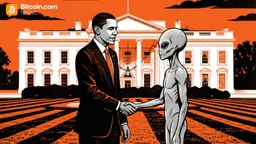Harmony (ONE)
Loading...
Loading...

Harmony is an innovative EVM-compatible Layer 1 blockchain platform that fosters an open and decentralized network through its native protocol token, Harmony ONE. This versatile token serves multiple essential functions, including staking, transaction fees, and voting in on-chain governance, thus incentivizing a broad range of participants like developers, validators, investors, and community members. By utilizing a proof-of-stake (PoS) consensus mechanism, users can earn block rewards and transaction fees, contributing to the network's security and functionality. Designed for scalability and high throughput, Harmony enables the creation of open marketplaces for both fungible and non-fungible tokens (NFTs), facilitating seamless transactions and interactions in the digital economy. As an integral part of the ecosystem, the Harmony token empowers users to partake in governance, shaping the future of the platform while aligning the incentives of developers and businesses. Overall, Harmony ONE is set to play a significant role in the growing cryptocurrency landscape, fostering innovation and collaboration among its users while driving the evolution of decentralized technologies. Through its commitment to secure and transparent operations, Harmony continues to gain traction in the blockchain space.
Harmony is a blockchain platform designed for decentralized applications, utilizing sharding and Effective Proof-of-Stake to achieve scalability and security. It offers 2-second transaction finality and low fees, making it compatible with Ethereum applications.
$ONE is the native token of the Harmony blockchain, used for transaction fees, staking, and governance. It incentivizes and rewards participants, including developers and validators, within the Harmony ecosystem.
$ONE tokens are available on various cryptocurrency exchanges, including Binance, Bybit, Gate.io, BitMart, and OKX.

Bitcoin’s price this morning at 8:15 a.m. Eastern time stands at $69,393 per coin, with a market cap of $1.38 trillion.

Discover what Obama said about aliens in a recent interview and why prediction markets remain skeptical about full disclosure.

Explore the future of Prospera, a unique ZEDE in Honduras, facing challenges after changes in political leadership.

Explore the issue of deposit flight and how stablecoins may impact the banking system without endangering it.

Animoca Brands obtains a Virtual Asset Service Provider license from VARA to offer regulated crypto services from Dubai. Animoca Brands announced on

$ONE tokens can be stored in wallets that support adding EVM blockchains, such as MetaMask, Trust Wallet, or Rainbow Wallet.
Harmony's sharding divides the network into segments that process transactions and store data in parallel, enhancing scalability and reducing latency. Each shard operates with its own consensus of nodes, allowing the network to handle a higher volume of transactions efficiently.
Effective Proof-of-Stake is Harmony's consensus mechanism that reduces centralization by supporting stake delegation, reward compounding, and double-sign slashing. It allows simultaneous staking from hundreds of validators, enhancing network security and decentralization.
Yes, Harmony is fully compatible with Ethereum applications, enabling developers to deploy their Ethereum dApps on Harmony's network with minimal modifications. This compatibility offers faster transaction finality and lower fees compared to the Ethereum mainnet.
Harmony's focus on scalability, security, and compatibility with Ethereum positions it uniquely in the blockchain space. However, as with any investment, potential investors should conduct thorough research and consider market volatility before investing.